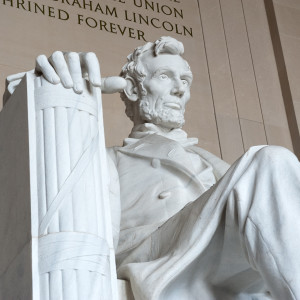Editor’s Note: For an alternative viewpoint, please see: Counterpoint: Americans Need a Government That Works for All
There can be no debate that we are witnessing the most divisive time in our country since the Civil War. The issue that divided the nation at that time was whether the seminal words that Thomas Jefferson wrote in the Declaration of Independence were true.
He wrote, “We hold these truths to be self-evident, that all men are created equal, that they are endowed by their Creator with certain unalienable Rights, that among these are Life, Liberty and the pursuit of Happiness. … That to secure these rights, Governments are instituted among Men, deriving their just powers from the consent of the governed, …”
The issue of slavery became a challenge to this concept of individual, unalienable rights as endowed by the Creator. Today, the challenge is not that ideologically separated from then. At that time, it was the physical chains of bondage that had to be broken. Today, we are challenged with breaking the metaphysical chains of economic bondage and there are two very separate and distinct means of achieving that.
It was President Abraham Lincoln who recognized this and gave a definitive articulation of the competing governing philosophies that have led to our present chasm.
Lincoln stated, “The world has never had a good definition of the word liberty, and the American people, just now, are much in want of one. We all declare for liberty; but in using the same word we do not all mean the same thing. With some the word liberty may mean for each man to do as he pleases with himself, and the product of his labor; while with others the same word may mean for some men to do as they please with other men, and the product of other men’s labor. Here are two, not only different, but incompatible things, called by the same name — liberty. And it follows that each of the things is, by the respective parties, called by two different and incompatible names — liberty and tyranny.”
So, we are here today in 2016, witnessing exactly what Lincoln described — two very different and incompatible means by which to rectify the issue of individual economic success. It truly comes down to what Jefferson advanced; the right of an individual to pursue his or her happiness is being challenged by a government that believes it can guarantee happiness. The former leads to economic empowerment, while the latter results in economic enslavement.
Probably the best representation of the belief that government guarantees happiness was spoken by first-term President Barack Obama in 2012 at an event in Roanoke, Virginia. It was there that President Obama stated, “If you own a business, you didn’t build that.”
What Obama dismissed was the indomitable, individual entrepreneurial spirit that has built this great nation over the last 240 years. He, wrongly, believed that it is the collective subjugation of the individual to the government that enables success. After all — as he stated — the government built the road to get to your business.
Then, who provides the financial resources for the government to build the road? Obama embraces a governing philosophy resembling Lincoln’s latter definition of “liberty,” which, as Lincoln clarifies, is actually tyranny.
Former U.S. senator and presidential candidate from North Carolina John Edwards once talked about “two Americas.” That is exactly what is being created.
There is an America that believes in working hard and being rewarded for the fruits of our labor. Those in this America understand that there are those who are less fortunate but embody a principle of equal opportunity and willingness to help others.
Then there is the America occupied by those who believe it is their duty to take from the one group and redistribute to the other. They believe that some are permanently unfortunate and embody a principle of equality of outcomes. This ruling elite feel better about themselves by giving to others.
What has happened in America is that the insidious concept of the “participation trophy” has left the little league fields and ended up as a philosophy of governance. The givers of the little plastic trinket feel good about themselves. They have convinced others that it boosts their self-esteem. In essence, all that does is create a false hope and expectation of always getting something for doing little, eroding the indomitable American spirit.
This is the seminal battle we are witnessing between Classical Liberalism, today’s Constitutional Conservatism and Progressive Socialism. The deep philosophical divide will close once we understand, as did Lincoln, the true difference between liberty and tyranny.

